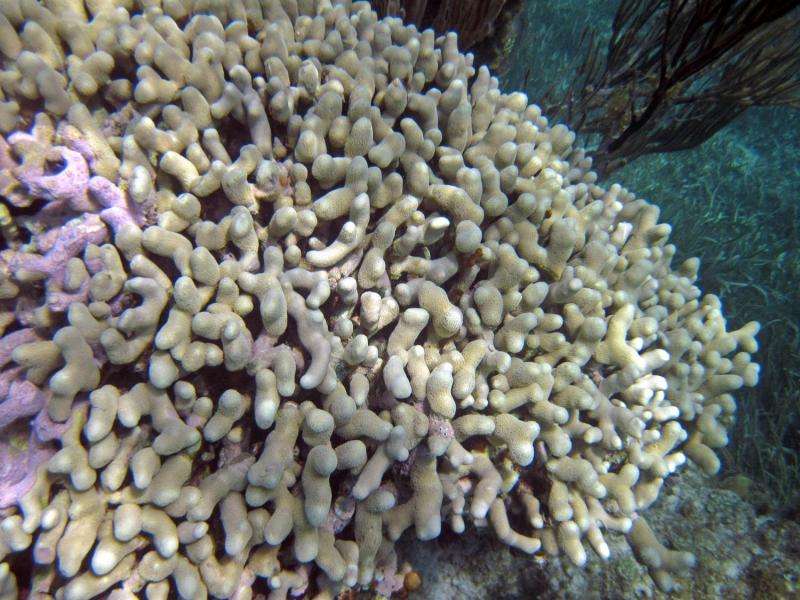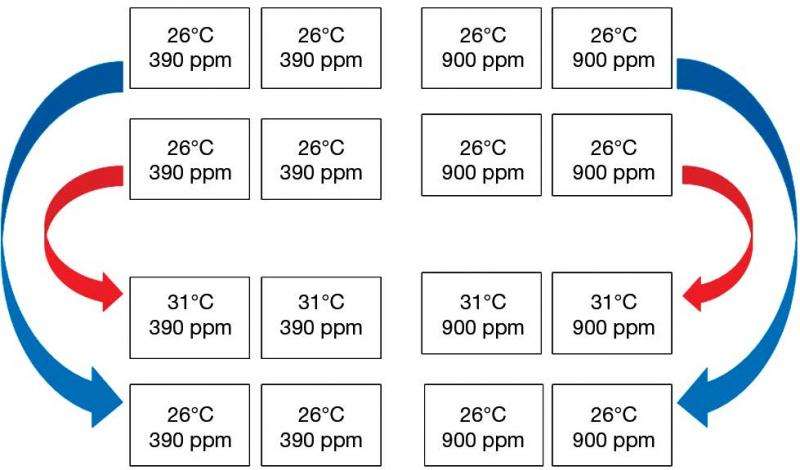Researchers show corals struggle to grow under multiple stressors

A new study from researchers at the University of Miami (UM) Rosenstiel School of Marine and Atmospheric Science found that multiple stressors might be too much for corals. The findings have important implications for the resilience of coral reefs to climate change.
To test the coral's response to multiple environmental stressors at once, UM Rosenstiel School researchers placed Caribbean branching coral Porites porites in waters with high levels of carbon dioxide (900 parts per million) for two months to mimic high ocean acidification conditions. Following the preconditioning, half of the corals were then subjected to increased water temperatures for two months. Following the five-month period, the researchers analyzed the growth, feeding rates, and photochemical efficiency of their algal symbionts in both groups to understand how they responded to multiple environmental stressors. Many previous studies have assessed the effects of multiple stressors, but this study is novel because it is the first to precondition corals to high CO2 before exposing them to a thermal bleaching event.
Corals preconditioned to high CO2 levels before the increased temperatures showed 44 percent lower growth rates compared to the group that only experienced a single stress of increased carbon dioxide. The researchers suggest that preconditioning to elevated CO2 worsens coral response to thermal stress, which could potentially exacerbate the effects of climate change stressors on coral reefs.

"This study is similar to what corals will likely experience in nature in the coming decades," said Erica Towle, a UM alumna and lead author of the study. "The findings improve our understanding of how reefs will respond to climate change in the future."
The carbon dioxide level of 900 parts per million was chosen to represent the value projected by the IPCC for the year 2075 under a 'business as usual' scenario.
The new study, titled "Preconditioning to high CO2 exacerbates the response of the Caribbean branching coral Porites porites to high temperature stress," was published in the March 21 issue of the journal Marine Ecology Progress Series.
More information: www.int-res.com/abstracts/meps/v546/p75-84/
Journal information: Marine Ecology Progress Series
Provided by University of Miami




















